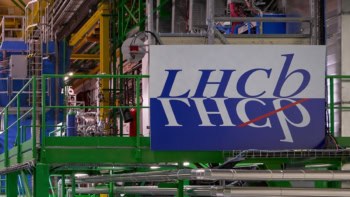Matin Durrani says it’s vital that the UK remains part of the EU’s huge Horizon research programme

When voters in the UK decided by a narrow margin in 2016 to leave the European Union (EU), it was clear to me that, despite all the turbulence that lay ahead, the country simply had to remain part of the EU’s €95bn Horizon scientific research programme.
Over the years, the UK has done incredibly well from its membership of Horizon, not only taking the lead on numerous multinational research projects but also securing far more money for research than it ever contributed.
The statistic that always caught my eye was that, in the seven years to 2013, UK scientists won €1.7bn in grants from the EU’s European Research Council – more than any other country.
The UK and EU’s Brexit deal, signed at the end of 2020, initially looked promising as it said that the UK would remain part of Horizon as an “associated” member. Whether you’d wanted to leave the EU or not, that seemed a sensible and pragmatic compromise.
Sadly, the partnership was never actually signed off and since then it’s become a political bargaining chip, particularly surrounding the status of Northern Ireland, as Michael Allen describes in the September issue of Physics World magazine, which is now out.
It should come as no surprise that the uncertainty over whether the UK remains part of Horizon has led to grant money being held up and British-based scientists having to give up leadership positions on Horizon projects.
The UK government has, thankfully, drawn up contingency plans if the country doesn’t end up being part of the current Horizon programme, which started last year.
But as the uncertainty drags on, the UK’s reputation as a desirable place to do science is increasingly under threat, not helped either by EU citizens no longer being able to move freely to Britain. Scientists will always “follow the money” and other European nations will increasingly be seen as a more desirable place to work (if they aren’t already).
Indeed, with the UK and Ireland being part of a common travel area that dates back to long before the EU existed, I wonder how many British physicists will be tempted to start looking for jobs in Ireland?
Unsurprisingly, few of the concerns over UK science have been discussed by the contenders to succeed Boris Johnson as Conservative prime minister. Science rarely gets mentioned in political campaigns and it’s been even lower than usual on the agenda in the tussle between Liz Truss and Rishi Sunak to win the backing of Conservative party members. But as we all know, a strong economy needs a strong base of science and innovation.
Wouldn’t it be great if the new prime minister ended the uncertainty and agreed with the EU that the UK should remain a member of Horizon? It would send out a strong signal that the country is back in business and wants to be at the heart of European science.
Unfortunately, I’m not holding my breath.
For the record, here’s a full rundown of what is in the issue. Remember that if you’re a member of the Institute of Physics, you can read the whole of Physics World magazine every month via our digital apps for iOS, Android and Web browsers. Let us know what you think about the issue on Twitter, Facebook or by e-mailing us at pwld@ioppublishing.org.
• Quantum consciousness put in doubt – An underground experiment at the Gran Sasso National Laboratory casts doubt on Roger Penrose’s ideas on the role of coherent superpositions in the brain, as Edwin Cartlidge reports
• UK science in limbo over Horizon – With the UK still wrangling over joining the €95bn Horizon Europe programme, researchers are warning that the impasse is accelerating the brain drain, as Michael Allen finds out
• Quantum computing gets down to business – Martijn Boerkamp reports how investments into quantum computing have ballooned in the past year, bringing huge expectations for the sector
• Tackling grade inflation – With more physics students than ever before getting top grades, Peter Main calls for new ways of measuring university performance to avoid “grade inflation”
• Nobel truth – Physicists and philosophers of science often appear to operate in different spaces. Robert P Crease reports from a meeting where they were, for once, in the same quantum state
• The power of photonics – James McKenzie marvels at the wonders of photonics, which is so much more crucial to everyday life than it first appears
• Hertha Ayrton: pioneering inventor and suffragette – Physicist, mathematician, engineer, inventor and suffragette: Hertha Ayrton was many things at a time when women were expected to simply keep house and raise a family. Anita Chandran explores the life of this remarkable scientist, who died a century ago next year
Opening gambits: why first sentences in science are just so hard
• Knitting space-time out of quantum entanglement – Clara Aldegunde goes on an intellectual journey to understand how quantum phenomena may thread together the fabric of space–time, giving rise to our reality
• Democratizing the quantum computing ecosystem – Krysta Svore, vice-president of Microsoft Quantum, talks to Tushna Commissariat about the company’s journey to quantum advantage
• Why Schrödinger failed at Oxford – Matin Durrani reviews Schrödinger in Oxford by David Clary
• A possible hope for our climate – Hamish Johnston reviews Pandora’s Toolbox: the Hopes and Hazards of Climate Intervention by Wake Smith
• Ask me anything – Careers tips from astroscientist Nicholas Attree and Sara Fry, the head of sustainability and of safety, health, environment at Atlas Copco’s Vacuum Technique business area.
• Staying grounded – When static electricity meets pseudoscience by Chris Holt




